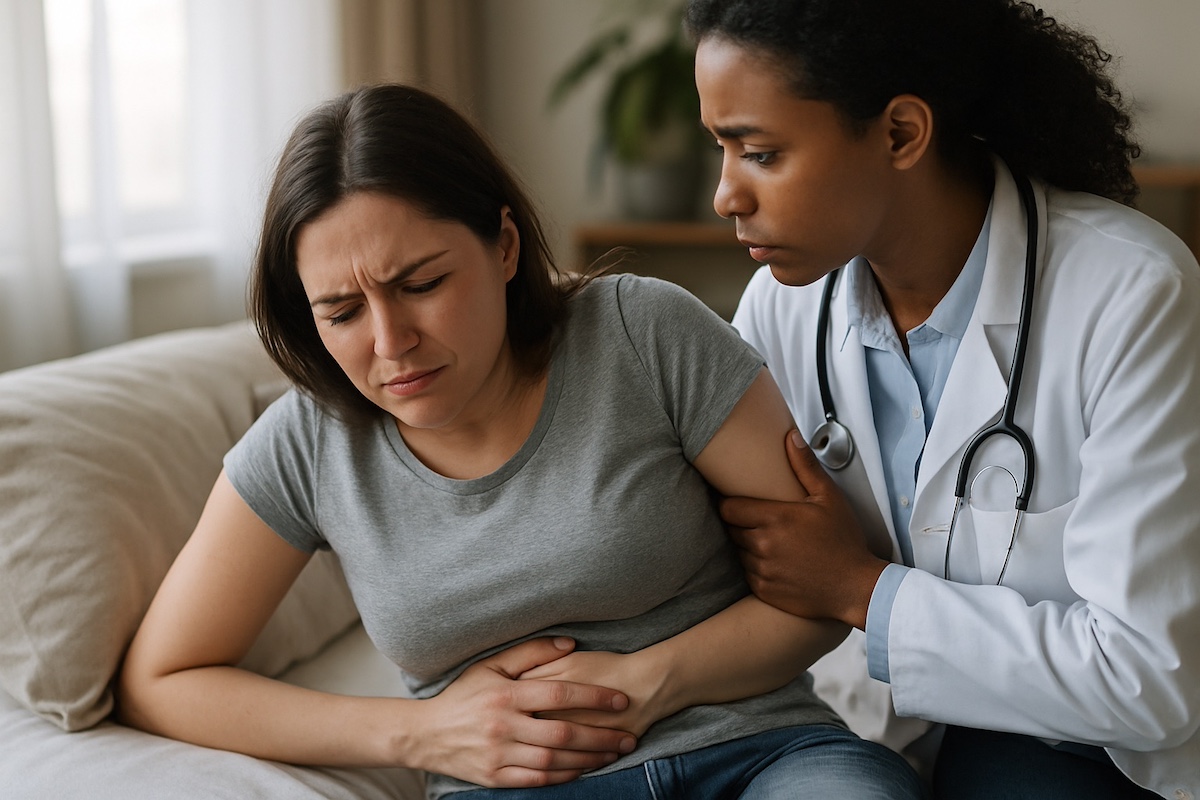Understanding Endometriosis
What Is Endometriosis?
Endometriosis is a chronic condition in which tissue similar to the lining of the uterus (endometrium) grows outside the uterus. This tissue behaves like normal endometrial tissue — it thickens, breaks down, and bleeds with each menstrual cycle — but has no way to exit the body. This can lead to inflammation, severe pain, and eventually, scar tissue and adhesions.
Common Symptoms
- Pelvic pain, especially during menstruation
- Pain during intercourse
- Heavy menstrual bleeding
- Infertility
- Bowel or urinary symptoms during menstruation
- Chronic fatigue
Causes and Risk Factors
While the exact cause of endometriosis is unknown, potential contributors include retrograde menstruation, hormonal imbalances, genetic factors, and immune system dysfunction. It most commonly affects women in their 30s and 40s but can occur at any reproductive age.
Short-Term Effects of Untreated Endometriosis

Chronic Pain and Inflammation
Without treatment, endometriosis can cause persistent pain that interferes with daily activities. Pain may be localized to the lower back, pelvis, or abdomen and may intensify during menstruation or intercourse.
Heavy and Irregular Menstrual Bleeding
Women with untreated endometriosis often experience abnormal menstrual bleeding — heavier and longer periods, as well as spotting between cycles.
Long-Term Consequences of Untreated Endometriosis
Infertility or Reduced Fertility
One of the most significant complications of untreated endometriosis is infertility. The condition can damage the fallopian tubes and ovaries, disrupt ovulation, and create an environment hostile to fertilization.
Organ Damage and Adhesions
As endometrial tissue continues to grow and bleed, scar tissue (adhesions) can form. These adhesions may cause pelvic organs to stick together, limiting mobility and function. In severe cases, it can lead to bowel or bladder obstruction.
Gastrointestinal and Urinary Complications
Endometriosis can affect the bowel and bladder, leading to painful bowel movements, constipation, diarrhea, bloating, or urinary urgency during menstruation. Left untreated, these issues can progress to more serious complications.
Fatigue and Mental Health Issues
Chronic pain and hormonal changes can lead to overwhelming fatigue. Many women also experience mental health challenges, including anxiety, depression, and social withdrawal due to reduced quality of life.
Rare but Serious Risks
Risk of Cancer (in Rare Cases)
While rare, certain types of ovarian cancer (such as endometrioid or clear cell carcinoma) are more common in women with long-standing, untreated endometriosis.
Risk of Ruptured Endometriomas
Endometriomas are cysts that form on the ovaries due to endometriosis. If left untreated, they may rupture, causing severe pain and internal bleeding — a medical emergency.
Bowel or Bladder Compromise
Severe cases can result in extensive scarring around the bowel or bladder, requiring surgery or long-term medical intervention.
Why Early Treatment Is Important
Slowing Disease Progression
Early intervention can slow or halt the spread of endometrial tissue, preventing the formation of adhesions and organ damage.
Pain Management and Lifestyle Improvements
Timely treatment reduces pain and improves quality of life, allowing individuals to return to daily activities, work, and social life without constant discomfort.
Protecting Fertility
For women who wish to become pregnant, managing endometriosis early can preserve reproductive health and increase chances of conception.
Reducing the Need for Complex Surgeries
When addressed early, less invasive treatments may be effective, avoiding the need for major surgeries in the future.
Common Treatment Options
Hormonal Therapy
Hormonal treatments such as birth control pills, GnRH agonists, and progestins help reduce or eliminate menstruation, slowing the growth of endometrial tissue.
Pain Relief Medications
NSAIDs and other pain medications can help manage discomfort, though they do not address the root cause.
Laparoscopic Surgery
Minimally invasive surgery is often used to remove endometrial implants and adhesions, especially in cases of infertility or severe pain.
Fertility Treatments
In vitro fertilization (IVF) or other assisted reproductive technologies may be recommended for women with endometriosis-related infertility.
Lifestyle and Dietary Modifications
Anti-inflammatory diets, regular exercise, and stress-reducing techniques like yoga and meditation can support overall health and symptom relief.
When to See a Doctor
Warning Signs You Shouldn’t Ignore
- Pelvic pain that worsens over time
- Painful periods unrelieved by medication
- Trouble conceiving
- Gastrointestinal or urinary discomfort during menstruation
Questions to Ask Your Gynecologist
- Could my symptoms be endometriosis?
- What diagnostic tests are recommended?
- What treatment options are best for my symptoms and lifestyle?
FAQs About Untreated Endometriosis
Can endometriosis go away on its own?
In most cases, endometriosis does not resolve without treatment. While symptoms may improve temporarily, especially after menopause, active disease can continue to progress and cause complications.
Can untreated endometriosis lead to cancer?
Although rare, chronic endometriosis has been linked to an increased risk of certain ovarian cancers, particularly in women with large or long-standing endometriomas.
How fast does endometriosis spread?
The rate of progression varies widely. Some women may experience slow growth, while others can develop severe symptoms and complications quickly.
What is the life expectancy with untreated endometriosis?
Endometriosis is not life-threatening, but untreated symptoms can severely impact quality of life, fertility, and organ function. Managing the condition greatly improves overall well-being.
Related Reading – Can You See Endometriosis on Ultra-Sound?
Conclusion: Prioritize Your Health with Clinton Women’s Healthcare
At Clinton Women’s Healthcare, we understand how debilitating untreated endometriosis can be — not just physically, but emotionally and mentally. That’s why our team of skilled OB-GYNs offers advanced diagnostic tools and minimally invasive treatments tailored to your unique needs.
Whether you’re facing persistent pain, fertility challenges, or uncertainty about your symptoms, we’re here to help. Our compassionate, patient-first approach ensures you receive the care and answers you deserve in a supportive environment. Conveniently located in Utica, Macomb, and Clarkston, MI, and affiliated with Troy Beaumont Hospital, we’re committed to helping you feel heard, healed, and hopeful.
Don’t wait until the damage is done. Schedule your consultation with Clinton Women’s Healthcare today — your path to relief and recovery starts here.
